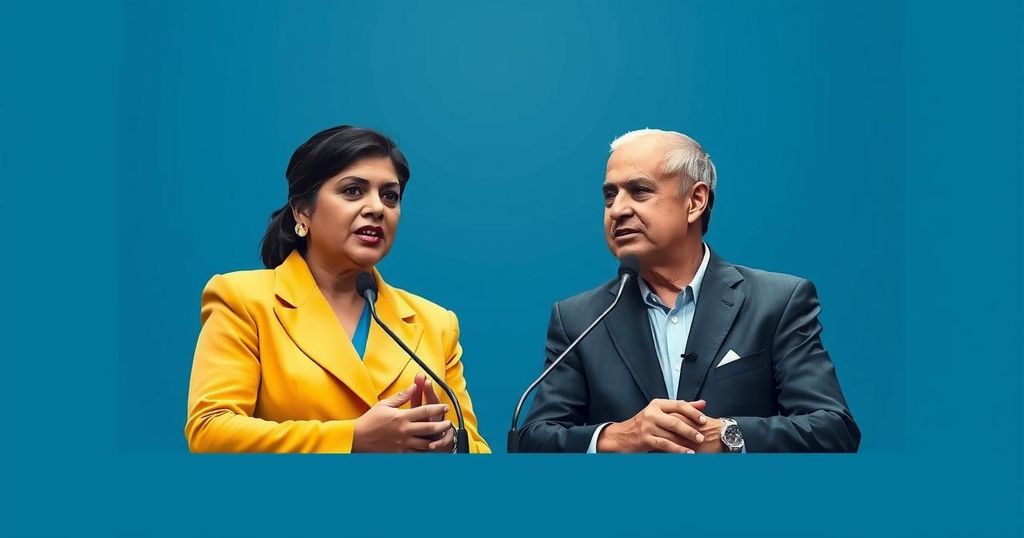Uruguay Elections: A Reflection of Political Stability Amidst Regional Turmoil

In Montevideo, Uruguay, voters participated in a presidential election featuring two moderate candidates, Álvaro Delgado and Yamandú Orsi, amidst a backdrop of high voter turnout and limited divisive rhetoric. The election reflects Uruguay’s political stability, contrasting sharply with its regional neighbors, and showcases the electorate’s relatively satisfied disposition toward government policies. A contentious referendum on social security reform also dominated discussions as voters evaluated pressing social issues alongside the presidential candidates.
Uruguay held a presidential election on Sunday, marked by a contest between two moderate candidates, reflecting the country’s reputation for political stability in a region often characterized by divisions and electoral strife. Approximately 2.7 million eligible voters participated, with a reported turnout exceeding 88%, as voting is obligatory in Uruguay for both presidential and parliamentary elections. The election results were anticipated shortly after polls closed, with a significant focus on a contentious referendum concerning the social security system. The candidates, Álvaro Delgado from the ruling conservative coalition and Yamandú Orsi from the center-left Frente Amplio (Broad Front), presented relatively similar platforms, fostering a sense of continuity rather than radical change. This atmosphere of consensus contrasts sharply with the political climates in neighboring countries, such as Brazil and Argentina, where electoral campaigns have been marred by acrimony. Juan Cruz Díaz, a Buenos Aires-based political analyst, remarked, “In a way, Uruguay has been boring, but boring in this sense is very good.” Delgado, age 55, previously the chief of staff for the center-right President Luis Lacalle Pou, expressed pride in the democratic process and the value of a stable government. Conversely, Orsi, age 57, a former mayor and history educator, celebrated the enduring democratic tradition in Uruguay, stating, “Uruguay has had the happiness for 40 uninterrupted years … the happiness that our citizens can elect their leaders.” Both candidates seek to address pressing issues, including child poverty and the rising crime rate, while also opposing a proposed overhaul of the social security system, aimed at redistributing financial resources in one of the region’s wealthiest nations. The electoral landscape is further complicated by the presence of a third candidate, Andrés Ojeda, who aims to invigorate the youth vote through an unconventional and dynamic campaign style. However, the general indifference among voters suggests a disconnect between the political elite and everyday concerns. In summary, while the election showcases Uruguay’s commitment to democratic principles and political stability, the lack of excitement in the campaigns may reflect a broader trend of voter apathy.
Uruguay is recognized for its robust democracy and political stability, distinguishing itself from neighboring countries characterized by political volatility. The ongoing elections highlight this stability, with significant voter participation and a lack of extreme polarization among candidates. The high turnout rate and compulsory voting reflect the Uruguayans’ engagement with their democratic institutions, even as broader discussions around social issues like poverty and security reform unfold.
The recent presidential election in Uruguay emphasizes a commitment to democratic values and a preference for moderate political candidates. Despite pressing social concerns, the political landscape remains relatively stable, characterized by consensus and cooperation rather than divisiveness. The results from this election indicate not only the voters’ contentment with existing governance but also a potential continuity in policy direction, befitting Uruguay’s reputation as a bastion of political stability in South America.
Original Source: www.pbs.org







